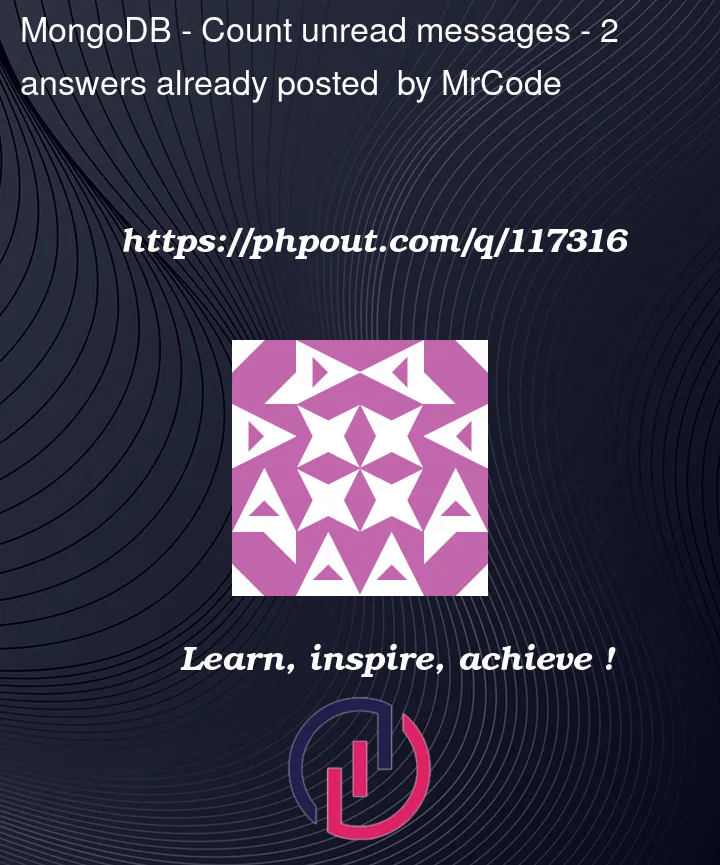I try to count unread messages for a user.
On my model, I have a property, LastMessageDate that contains the date on the last created message in the group chat. I have also a Members property (list) that contains the members in the group chat. Each member has the UserId and LastReadDate properties. The LastReadDate is updated when the user writes a new message in the group chat or when the user loads messages from the group chat.
Now I want to count the number of chats where a specific user has unread messages (The messages are stored in another collection).
I try this:
var db = GetGroupCollection();
var filter = Builders<ChatGroup>.Filter.Where(p => p.Members.Any(m => m.UserId == userId && m.LastReadDate < p.LastMessageDate));
return await db.CountDocumentsAsync(filter);
But I receive the following error:
The LINQ expression: {document}{Members}.Where((({document}{UserId} ==
730ddbc7-5d03-4060-b9ef-2913d0b1d7db) AndAlso
({document}{LastReadDate} < {document}{LastMessageDate}))) has the
member "p" which can not be used to build a correct MongoDB query.
What should I do? Is there a better solution?




2
Answers
When you want to query a nested list of a document, ElemMatch is your solution,
Try
Based on the provided data in the comment, I think the aggregation query is required to achieve the outcome.
$set– SetMembersfield1.1.
$filter– WithMembersarray asinput, filter the document(s) with matching the current document’sUserIdandLastMessageDateis greater than ($gt) the current document’sLastReadDate.$match– Filter the document withMembersis not an empty array.Sample Mongo Playground
For C# syntax, either you can directly provide the query as a string or convert the query to
BsonDocumentsyntax.Note that the query above will return the array of documents, hence you will need to use System.Linq to count the returned document(s).